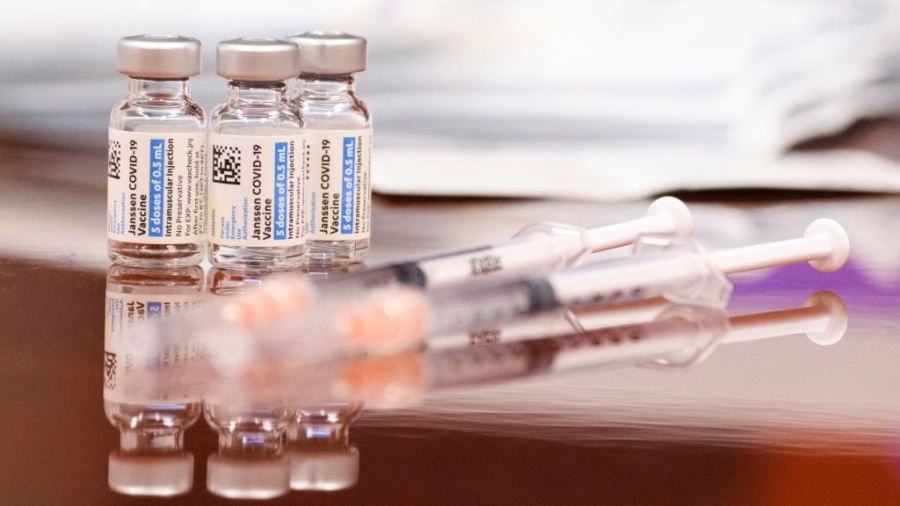U.S. drug regulators this week formally strengthened a warning to Americans regarding a severe condition linked to Johnson & Johnson’s COVID-19 vaccine.
Blood clots and low blood platelet levels, known as thrombosis with thrombocytopenia syndrome (TTS), are now listed as a contradiction, or a medical reason for somebody not to get the shot.
“Do not administer” the vaccine to individuals with a history of the set of conditions following the vaccine or any other adenovirus-vectored COVID-19 vaccine, the Food and Drug Administration (FDA) says in an updated fact sheet (pdf) for health care providers administering vaccines.
TTS has been reported in “a wide range of individuals 18 years and older” since administration of the Johnson & Johnson (J&J) vaccine began earlier this year, regulators say.
The highest reporting rate, approximately 1 case per 100,000 doses administered, has occurred in women aged 30 to 49.
About 15 percent of the TTS cases have been fatal.
“Currently available evidence supports a causal relationship between TTS and the Janssen COVID-19 Vaccine,” the FDA says in its updated fact sheets.
Janssen is a subsidiary of J&J.
J&J did not respond to a request for comment.
In the spring, U.S. health officials recommended a nationwide pause in administration of the vaccine due to TTS cases appearing among people who had gotten it.
The pause was lifted in April.
The FDA and Centers for Disease Control and Prevention (CDC) said at the time that officials were confident the vaccine was safe and effective in preventing COVID-19.
The FDA said that the available data showed the known and potential benefits outweigh its known and potential risks.
Paul Stoffels, J&J’s chief scientific officer, said when the pause was lifted that the company would work with health authorities worldwide “to educate health care professionals and the public to ensure this very rare event can be identified early and treated effectively.”
More recently, a Mayo Clinic study found J&J vaccine recipients had a higher risk of blood clots.
COVID-19 is the disease caused by the CCP (Chinese Communist Party) virus. Three COVID-19 vaccines are available for use in the United States. J&J’s is by far the least used. Just 17.2 million doses have been administered as of Dec. 15, compared to 185.8 million doses of Moderna’s vaccine and 283 million doses of the Pfizer-BioNTech vaccine.
A Mayo Clinic study in November found J&J vaccine recipients had a higher risk of blood clots when compared to recipients of the other two shots.
Currently, there are no restrictions in place on administration of the J&J jab.
The two contraindications, TTS and severe allergic reaction, typically only apply once a person has suffered an adverse event.
The CDC’s vaccine advisory panel is meeting Thursday to hear presentations from the CDC on J&J’s vaccine.
A draft agenda says that one presentation will be on TTS. Another will go over updates to the risk-benefit assessment for the vaccine.
Members of the panel will vote in the afternoon on updated recommendations for use. They may potentially narrow the populations who can get the shot.
The panel is meeting “to hear the latest information on vaccines and disease epidemiology,” Jasmine Reed, a CDC spokeswoman, told The Epoch Times in an email.
There is no indication FDA experts will participate in the meeting and a spokeswoman for the agency did not respond to a request for comment.
From The Epoch Times


